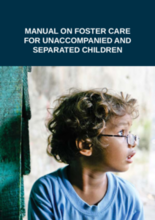Displaying 1271 - 1280 of 2221
The study consisted of a comparative follow-up study with a pretest-posttest design which explored the association between baseline child, family, and care characteristics and the psychosocial development of 121 schoolaged Dutch children during their first year of placement in foster care (FC), family-style group care (FGC), and residential care (RC).
This article describes a dataset containing information on children exiting to kinship guardianship in California between 2003 and 2010.
The goal of the article is to analyze the characteristics and experiences of youths when they leave care and their first years in transition from foster care to adulthood.
Using an intersectional framework, this study investigated whether race and gender alone or the intersection of race and gender predicted the educational attainment of 429 maltreated youth involved with the U.S. child welfare system.
This study examined the extent to which professional foster families fulfil their tasks to reintegrate families, what attitudes professional foster families assume towards the idea of reintegration, and to what extent and how professional foster families support a child separated from his or her family and parents in the process of reintegration.
This study examined the relationships between adults, ages 25-39, who had been in care as children and their birth parents.
This is the report of the 3rd Biennial International Conference (3rd BICON) on “Evolving Trends in Alternative Care for Children in South Asia” that was convened by Udayan Care on March 16 & 17, 2018 at Amity University, Noida NCR (India).
This Manual sets the minimum standards and policies for the protection and care of unaccompanied and separated children (UASC) within a foster care arrangement in Malaysia.
The purpose of this study is to (1) retrospectively characterize the specific implementation strategies employed to deliver a coordinated set of evidence-based screening and linkage practices to facilitate identification and treatment of early developmental and social-emotion problems; and (2) examine preliminary indicators of the impact of these strategies.
This study examines whether mothers who had a child taken into care by child protection services have higher mortality rates compared with rates seen in their biological sisters who did not have a child taken into care.

